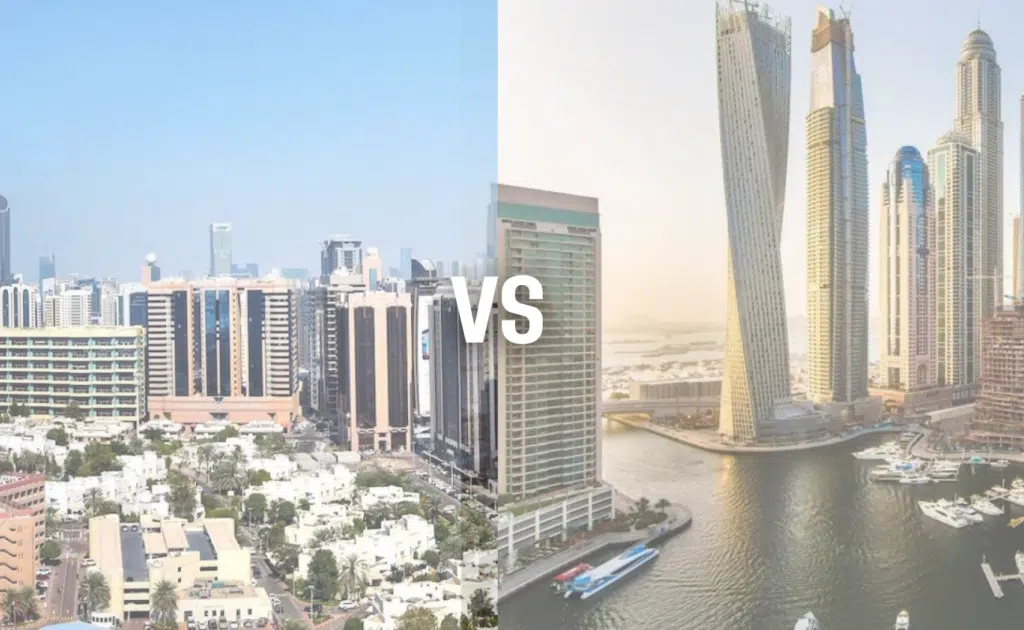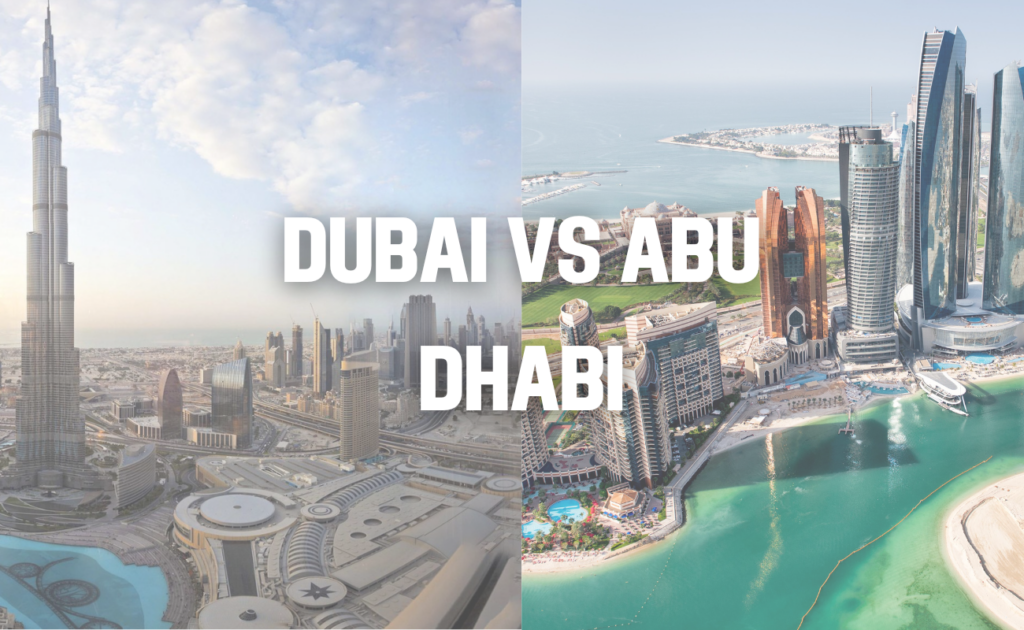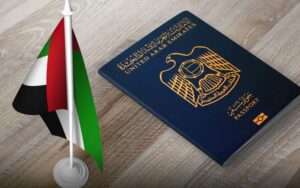The UAE is well-known for its contemporary infrastructure, opulent way of life, and large expat population. Of the seven emirates that make up the United Arab Emirates, the two most prominent and famous are Abu Dhabi and Dubai. Not only are these two cities adjacent to each other, but they also have quite different cost of living and ways of life. A wide range of living expenditures, including rent or mortgage, utilities, transportation, healthcare, schooling, food, and wages, will be compared in this exhaustive study of the two cities. People looking to settle down in a new place might narrow down their options based on their budget and personal preferences by considering these aspects.
Comparison of Dubai and Abu Dhabi Housing Prices

For many people living in Dubai and Abu Dhabi, housing costs the most money. Location, square footage, and amenities all play a role in determining how much an apartment in Dubai will cost to rent. A one-bedroom apartment in the heart of Dubai, for example, can cost anything from seven thousand to fifteen thousand UAE dirhams (AED) each month. Because of their exceptional locations and closeness to famous landmarks, popular places including Downtown Dubai, Dubai Marina, and Jumeirah Beach Residence are notoriously expensive to rent in.
The rental prices in Abu Dhabi, on the other hand, are marginally lower. Rent in the heart of Abu Dhabi for a one-bedroom apartment ranges from 6,000 to 12,000 UAE dirhams a month. There is a wide variety of housing alternatives in desirable neighborhoods such as Al Khalidiyah, the Corniche, and Al Reem Island. In contrast to Dubai’s hectic metropolis, Abu Dhabi’s large residences and villas are more reasonably priced.
Both cities include rental possibilities in the suburbs for people looking for a more budget-friendly home. A one-bedroom apartment in a Dubai neighborhood like Discovery Gardens, Al Nahda, or International City may be yours for 3,500 to 7,000 Dubai dirhams a month. Suburbs of Abu Dhabi such as Mohammed Bin Zayed City, Khalifa City, and Al Reef also have rental prices ranging from three thousand to six thousand UAE dirhams monthly.
Gas and Electricity Rates in Dubai and Abu Dhabi
Electricity, water, cooling, heating, and trash disposal are all costs that fall under the umbrella of utilities. Considering the hot environment in the UAE, which requires a lot of air conditioning, these costs are very important for people. The typical monthly utility expenditure for an 85 square meter apartment in Dubai is between 800 and 1,200 UAE dirhams. The overall amount due to the utility company can vary depending on things like how well the building is insulated, how efficient the cooling system is, and how much energy each person uses.
Utility prices in Abu Dhabi are often lower, ranging from 600 to 1,000 AED per month for an apartment of a comparable size. Part of the reason for this variation is that each city has its own unique environment and utility price structure.
Residents can lower their utility bills by taking advantage of the energy-saving programs offered by both communities and by purchasing products that consume less energy. Tenants may find it easier to stick to a budget if their building includes utilities in the rent.
How Much Does It Cost to Get Around Dubai and Abu Dhabi?

An further major component of living expenditures is transportation. Numerous modes of public transit, such as the Dubai Metro, as well as buses, trams, and taxis, are available in Dubai. For about AED 300 per month, you may get unlimited rides on the metro and buses in Dubai with a public transport pass. The efficiency and extensive coverage of the Dubai Metro make it a popular choice among both locals and visitors.

Public transportation in Abu Dhabi isn’t as well-developed as in Dubai, but it’s becoming better all the time. About 250 Abu Dhabi Dirhams (AED) can get you a monthly pass to use the public transportation system. There is a well-established bus system in the city, and there are also initiatives to increase the availability of public transit.
Both cities have cheap gas prices for drivers since the government subsidizes the price of fuel. On the other hand, due to higher insurance rates and parking costs, car ownership in Dubai can be more costly. For example, whereas yearly auto insurance in Abu Dhabi might cost between 1,000 and 3,500 AED, in Dubai it can cost between 1,200 and 4,000 AED. Parking in Dubai, particularly in congested places, can get expensive fast, but in Abu Dhabi, you can usually find better deals.
Medical Expenses in Dubai and Abu Dhabi
The UAE’s healthcare system is heavily reliant on private companies, which results in comparatively high expenses. But there are a lot of hospitals and clinics in Dubai and Abu Dhabi that provide top-notch healthcare with cutting-edge technology.
An ordinary trip to the doctor can set you back about AED 300 in Dubai and about AED 250 in Abu Dhabi. Health insurance is a legal requirement, and most people’s jobs will pay for the most basic coverage. But people can always opt to increase the scope of their insurance to cover more medical procedures. The higher cost of living in Dubai is reflected in the higher insurance rates compared to Abu Dhabi.
Health insurance greatly reduces the financial burden of unexpected medical bills, consultations with specialists, and elective operations. Public healthcare facilities in both cities offer lower-cost services, however they are mostly available to UAE nationals.
Costs of Higher Education in Dubai and Abu Dhabi
Many expat families are concerned about their children’s education, and fortunately, there is a diverse selection of international schools in Dubai and Abu Dhabi that follow a variety of curriculum, including those from the United Kingdom, the United States, India, and the International Baccalaureate (IB). The yearly cost of attending one of these schools might range widely.
Tuition at Dubai’s foreign schools can cost anything from thirty thousand to one hundred thousand UAE dirhams each year, with the exact amount depending on the student’s grade and the school’s prestige. A few examples of more costly possibilities are the American School of Dubai, Jumeirah English Speaking School (JESS), and Dubai College, respectively.
The cost of a similarly excellent education in Abu Dhabi is marginally less. Abu Dhabi’s international schools charge between 25,000 and 90,000 AED per year in tuition. Some of the most well-liked schools among expat families in Abu Dhabi are Raha International School, American Community School of Abu Dhabi, and British International School Abu Dhabi.
Uniforms, textbooks, transportation, extracurricular activities, and tuition are just a few of the many educational expenditures that parents need to think about. Having a school bus can cost an additional 5,000 to 10,000 AED per year for each student.
Shopping Costs in Dubai and Abu Dhabi
Dubai and Abu Dhabi have similar grocery pricing, with Dubai being somewhat more expensive on average. To give you an idea, the price of a liter of milk in Abu Dhabi is about 5.50 AED, whereas in Dubai it’s around 6 AED. A loaf of bread costs 5 AED in Dubai and 4.50 AED in Abu Dhabi, for example. Because of these little variations, buying groceries in Abu Dhabi is slightly less expensive than in other cities.
There is a vast variety of local and imported goods offered by the many supermarkets and hypermarkets in both cities, including those belonging to multinational brands such as Lulu Hypermarket, Spinneys, and Carrefour. You can also find reasonably priced, fresh food at farmer’s markets and other smaller grocery stores.
Dubai vs. Abu Dhabi: Wages and Quality of Life
The high cost of living is reflected in the competitive salaries in both cities, which are generally tax-free. In the private sector and for specialized positions, however, incomes in Dubai tend to be greater than in Abu Dhabi. As an example, according to Smeets (2013), a mid-level manager in Dubai may expect to earn around AED 25,000 monthly, while in Abu Dhabi, the typical income is around AED 22,000.
The greater cost of living in Dubai frequently cancels out the higher wages. On the other hand, Abu Dhabi provides a more well-rounded way of life, where slightly lower salaries may still cover basic expenses, thanks to its slightly cheaper cost of living. A diversified and multicultural environment is fostered in both cities by the presence of expatriates from all over the globe.
Spending on Amusement and Recreation
While both Abu Dhabi and Dubai provide plenty of things to do for fun and relaxation, many consider Dubai to have a livelier and more diverse environment. The price of amusement can range greatly from one pastime to another.
A cinema ticket in Abu Dhabi will set you back roughly 40 AED, whilst in Dubai it will cost you around 45 AED. A two-person dinner at a moderately priced restaurant in Dubai can cost anywhere from AED 250 to AED 400, while in Abu Dhabi it can cost between AED 200 and AED 350.
A few of Dubai’s most recognizable landmarks are the Palm Jumeirah, the Burj Khalifa, and the Dubai Mall, as well as the city’s many theme parks. You might expect to pay more for these attractions. Alternatively, cultural attractions in Abu Dhabi, like the Sheikh Zayed Grand Mosque, the Louvre Abu Dhabi, and other heritage monuments, tend to be more reasonably priced.
Price of Domestic Services
Domestic assistance and other housekeeping services are popular in both cities, particularly among families who have relocated abroad. In both locations, you may find domestic help including nannies, drivers, and maids for about the same price, however it can vary depending on the worker’s expertise and the exact tasks that need doing.
A full-time live-in maid in Dubai will cost anything from 1,800 to 3,500 AED (not including meals) per month. The monthly cost is slightly lower in Abu Dhabi, ranging from 1,500 to 3,000 AED. Housekeeping services are also offered on an as-needed basis; in Dubai, the going charge is 30 to 50 AED per hour, whereas in Abu Dhabi, it’s 25 to 45 AED.
In summary
Living expenses tend to be greater in Dubai than in Abu Dhabi, despite the fact that both cities have first-rate infrastructure and services. Education, healthcare, utilities, housing, and transportation are all more costly in Dubai. Nevertheless, the greater salaries in Dubai more than compensate for these higher living expenses. If you’re trying to save money without sacrificing quality of life, Abu Dhabi may be the better choice for you because of its somewhat reduced housing and utilities bills.
Which of the two cities is better, in the end, depends on personal taste and budget. Abu Dhabi may be more to your liking if you’re searching for a tranquil and affordable place to live, whilst Dubai may be more to your liking if you’re wanting a lively, fast-paced lifestyle with plenty of entertainment alternatives.







